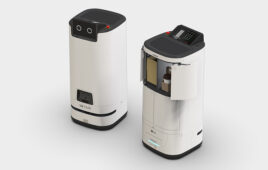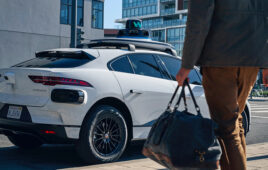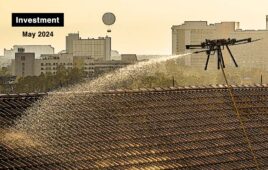|
Listen to this article
|
Despite a bumpy 2023, Cruise LLC isn’t nearing the end of the road yet. General Motors, its parent company, said last week that it would invest an additional $850 million into the autonomous vehicle developer.
To date, GM has invested more than $8 billion into Cruise and hasn’t yet seen much of a return. In 2023 alone, the San Francisco-based company lost $3.48 billion.
However, it doesn’t seem like GM is ready to take the route that Ford and VW did when those automakers shut down Argo AI. Its additional investment will help cover Cruise’s operational costs. The company also said it’s looking for new external investors to help bolster its financial situation.
GM to review self-driving division
Paul Jacobson, GM’s chief financial officer, announced the investment during the Deutsche Bank Global Auto Industry Conference held in New York City. Jacobson said that the investment will buy GM time to conduct a “strategic review” of the division‘s future.
Cruise faced a number of struggles in 2023, culminating in an Oct. 2 incident when one of Cruise’s vehicles dragged a pedestrian 20 feet after she was hit by another driver. After the accident, the California Department of Motor Vehicles (DMV) suspended Cruise’s permits in the state, alleging that the company withheld footage of it.
Cruise disputed the allegation but paused nationwide operations to reestablish trust with the public. Since then, the city of San Francisco filed a lawsuit against the California Public Utilities Commission (CPUC), the organization responsible for regulating autonomous vehicles (AVs) in the state, to drastically reduce the number of robotaxis on the city’s roads.
In May 2024, Cruise reached a settlement with the pedestrian for between $8 million and $12 million, according to Bloomberg News.
Cruise gets back on the road in select areas
Last week, Cruise resumed manual driving in Houston and Dallas and announced that supervised driving is under way in Phoenix and Dallas. It began manual operations in Phoenix in April.
The company has yet to restart driving in its home state of California. Cruise has long had its sights set on deploying its driverless robotaxis in San Francisco, where it was founded in 2013. It has said the city’s difficult driving conditions will prepare its autonomous driving system for any other city.
Cruise is taking an incremental approach to rolling its robotaxis back out on public roads. Starting with manual operations, where a human driver controls the vehicles without autonomous systems engaged, allows the company to gather road information and create maps.
The company said that supervised autonomous driving, where Cruise’s vehicles drive themselves with a safety driver behind the wheel ready to take over if needed, build on its data. Cruise added that safety drivers play an important role in testing AV performance on real-world roads and driving scenarios.
During this phase of operations, Cruise said it will validate its AV’s end-to-end behaviors against its rigorous safety and performance requirements.







Tell Us What You Think!